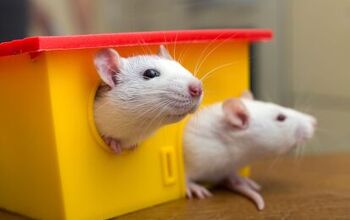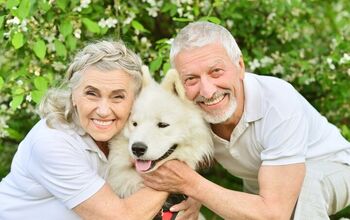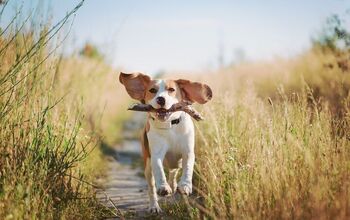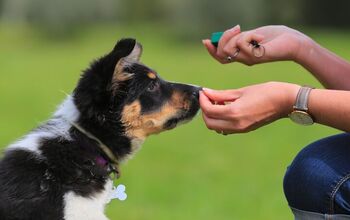Doggie Depression: Understanding Depression in Dogs

For many people, there are days when you simply don’t have the will to get out of bed – there may also be days when you lose interest in the things you once enjoyed. An occasional day of bad mood is normal, and to be expected. But the trouble begins when sadness and despondence become a regular occurrence. Depression is a common condition among people and it can also affect dogs. Not only can depression affect your dog’s mood, but it can also impact his activity level and his eating habits so it is not something you should ignore. If left untreated, this condition can seriously affect your pet’s general health, and lead to some other issues that can potentially get out of hand. That is why it is imperative to recognize depression quickly and to react accordingly.
Symptoms of Depression in Dogs
When your dog isn’t feeling well, he can’t just open his mouth and tell you – it is your job as a dog owner to familiarize yourself with your dog’s “normal” behavior so you will be able to quickly identify a problem if something changes. Depression affects different dogs in different ways but behavioral changes are the biggest indicators. Luckily, these changes can be easy to spot – something just seems “off”. Some of the most common symptoms of doggie depression include:
Lethargy/Loss of Interest: If your dog no longer seems to enjoy his once favorite toys or activities, he could be depressed. This symptom may also manifest in the form of lethargy or a general depressed appearance. You know your pupper as an active and energetic pet – but now he seems to spend more and more time snoozing and laying inactive, staring off into the distance? Maybe you try to rouse him up with a favorite snack or some tasty meal but get no response on that? Depression is undoubtedly setting in.
Related: Top 10 Dogs that Help Fight Depression
Changes in Eating Habits: When a dog is depressed he will frequently start to eat less and may even refuse food entirely. In rare cases, the opposite will happen – a dog that usually eats lightly will suddenly become ravenous. Still, the loss of appetite is the most common evidence of depression. As we all know, every doggo just loves to munch, especially if a treat is in question. Refusing to munch on one repeatedly, with lethargy accompanying is a sure sign that something is terribly wrong.
Disorientation: If your dog appears to be lost or wanders from room to room, it could be a sign of depression. Your dog might also fail to engage in normal greeting behaviors when people come to the house. This goes hand in hand with the loss of interest that develops with depression. Also, if your pet looks confused around some trivial and normal features and places in your home, it is a sign to seek help.
Changes in Sleep Habits: In addition to changes in eating habits, depression also frequently causes changes in sleep habits for dogs. If your dog is sleeping more than usual (particularly when paired with lethargy) it could be a sign of depression. What is more, some doggos can not sleep at all – if you see that they are lying down for hours on end but staring into the empty space, or spot them despondent and awake during the night, depression is the likely factor.
Related: Just What The Doctor Ordered: The Health Benefits Of Cats
Increased Frequency of Accidents: If your well-trained dog suddenly starts having accidents in the house it is probably an indication of a problem. This is especially likely to be a problem if it is paired with changes in eating and drinking habits.
Destructive Behavior: In some cases, dogs with depression become more aggressive or they develop destructive behaviors like chewing. If your dog is normally calm but he suddenly becomes destructive, it could be because he isn’t getting enough exercise and he has become depressed as a result. This behavior is markedly different from curious chewing of furniture that’s common for teething puppies. Depressive destruction can be noticeably intentional, as if your dog is trying to tell you something is wrong. If you spot that your dog starts acting out and destroying your prized possessions, or in extreme cases, attacking people and other animals, this may be a clear sign of inner turmoil.
Diagnosis and Treatment Options
The best way your veterinarian will be able to diagnose your dog with depression is by an observation of symptoms. You need to keep a careful watch on your dog and take note of when the symptoms first started to manifest and how they have progressed. Treatment options for depression in dogs vary. In some cases, the dog will come out of the depression on his own if you make an effort to pay more attention to him and tempt him with new toys and games. For some dogs, however, antidepressant medications like Prozac may be required. Be sure to speak to your veterinarian about treatment options – do not administer any medications without the approval of your vet because dosage for dogs is different for humans. You also want to make sure that your dog’s symptoms are not caused by some kind of underlying medical problem. A lot of the symptoms of doggie depression, such as lethargy or loss of appetite, can also be symptoms for different health problems. A myriad of diseases and illnesses can manifest in this way so it is crucial to make sure you rule out any physical cause for your pet’s drastic change of mood and behavior before you turn to other explanations.
For a dog owner, there is nothing more heartbreaking than seeing your dog unwell. Depression in dogs is a real and serious problem that should not be overlooked. If you suspect that your dog is suffering from depression, seek veterinary help as soon as possible to get your dog back on the track to wellness. Sometimes your honest efforts of cheering them up will simply seem to have no lasting effects and that can be quite heartbreaking. Still, it isn’t a reason to give up – a change for the better is possible, and you can have your old happy pooch back with some dedicated work and help.

Kate Barrington is the loving owner of two cats (Bagel and Munchkin) and a noisy herd of guinea pigs. Having grown up with golden retrievers, Kate has a great deal of experience with dogs but labels herself a lover of all pets. Having received a Bachelor's degree in English, Kate has combined her love for pets and her passion for writing to create her own freelance writing business, specializing in the pet niche.
More by Kate Barrington























